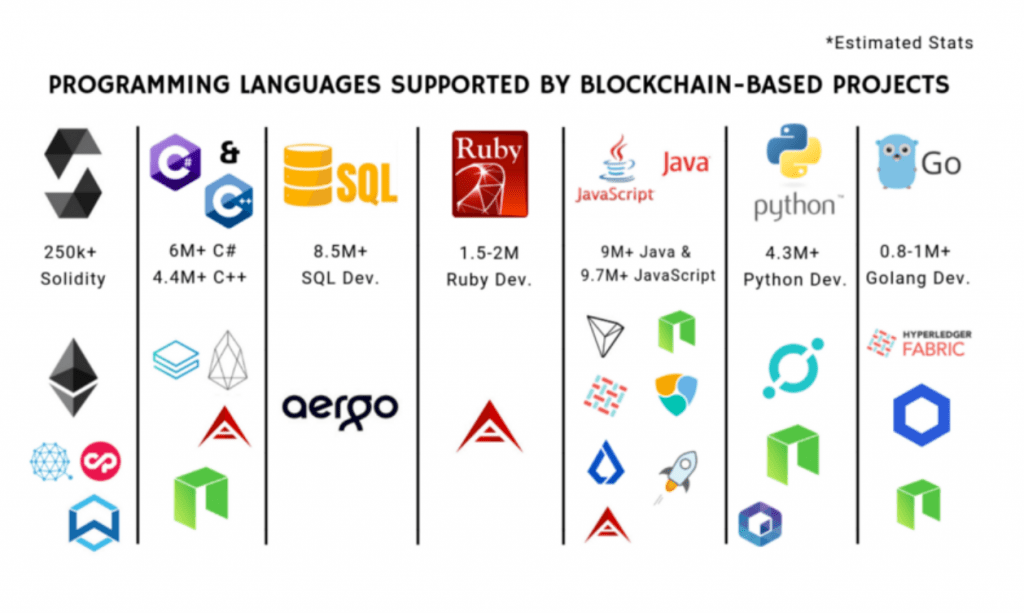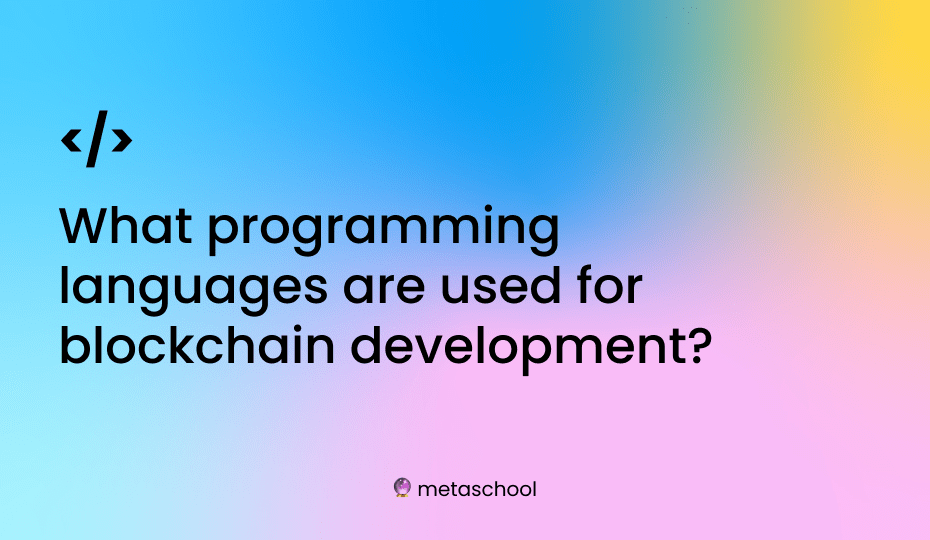Table of Contents
Blockchain technology has taken the world by storm in recent years, with countless applications and use cases being developed in a wide range of industries. At the heart of it is a complex and powerful set of blockchain programming languages that enable developers to build and deploy blockchain-based solutions.
But with so many programming languages to choose from, it can be difficult to determine which one is best suited for blockchain development.
In this blog, we will explore the various blockchain programming languages that are commonly used for development, and we will highlight their pros and cons. By the end of this blog, you will have a better understanding of the different options available and which one may be right for your blockchain project.
Let’s take a closer look at some of them with their unique features.
Popular blockchain programming languages used in development
There are many programming languages that can be used for blockchain development, each with its own strengths and weaknesses. Here are some of the most popular programming languages along with a brief overview of their key features:
1) Solidity
Solidity is a high-level programming language specifically designed for writing smart contracts on the Ethereum blockchain. It is a statically typed language with a syntax similar to that of JavaScript, making it easy for developers who are familiar with JavaScript to learn. Solidity allows for the creation of complex contracts that can be used to facilitate various decentralized applications (dApps).
Check this out to master the most popular web3 programming language
2) C++
C++ is a high-performance programming language that is widely used in blockchain development. It is a statically typed language with a complex syntax, making it a popular choice among experienced developers. C++ is highly performant and efficient, making it a good choice for building high-performance blockchain networks and applications.
3) JavaScript
JavaScript is a popular, high-level programming language that is widely used in web development. It is a dynamically typed language, meaning that the type of a variable is not specified at compile time, but is determined at runtime. JavaScript has a large developer community and a rich ecosystem of libraries and frameworks, making it a popular choice for blockchain development
4) Python
Python is a high-level, general-purpose programming language that is widely used in blockchain development. It is a dynamically typed language with a simple and easy-to-learn syntax, making it a popular choice among developers. It has a large and active community of developers who have created various libraries and frameworks for blockchain development, making it easy to build blockchain applications with Python.
5) GoLang
Go, also known as Golang, is a programming language developed by Google that is widely used in blockchain development. It is a statically typed language with a syntax similar to C, making it easy for developers who are familiar with C to learn. Go is highly performant and efficient, making it a popular choice for building blockchain networks and applications.

Key factors to help decide which blockchain programming language to go with
Your choice of blockchain programming language for development will definitely vary depending on what it offers, time and learning constraints, and the requirements of your project. Here’s what you should be looking at when deciding.
1. Suitability for blockchain
Some programming languages are better suited to the specific requirements of blockchain development than others. For example, Solidity is specifically designed for developing smart contracts on the Ethereum blockchain, while JavaScript is more general-purpose and may not be as well-suited to the specific needs of blockchain.
2. Ease of use and learnability
The ease of use and learnability of a programming language can be an important factor for developers, especially for those who are new to blockchain development. Languages like Solidity and Python are relatively easy to learn and use, while others like C++ and Java can be more challenging for beginners.
3. Availability of developer support and resources
The availability of developer support and resources can be an important factor in choosing a programming language for blockchain development. Languages like JavaScript and Python have large developer communities and a vast ecosystem of libraries and frameworks, making it easier to find support and resources for development.
4. Limitations for blockchain development
Some programming languages may have limitations that make them less suitable for certain types of blockchain development. For example, JavaScript is not well-suited to the specific requirements of blockchain, and may not be the best choice for developing complex smart contracts or other blockchain-based applications.
By carefully evaluating these factors, developers can choose the best language for their project and maximize its chances of success.
—
In conclusion, your choice of blockchain programming language is an important decision that can impact the success of a project. Different languages have different strengths and weaknesses, and the best language for a particular project will depend on the specific requirements and goals of the project.
